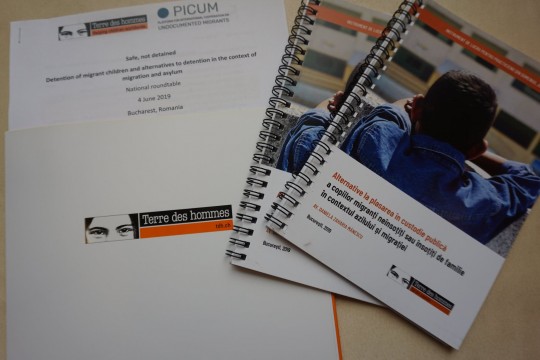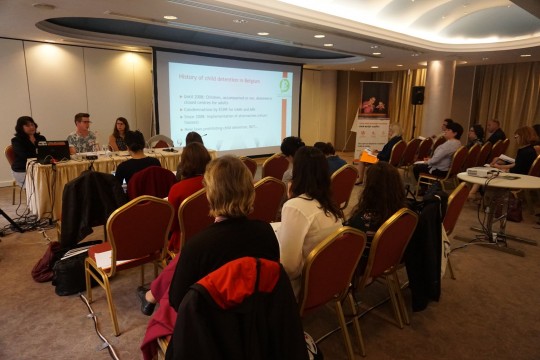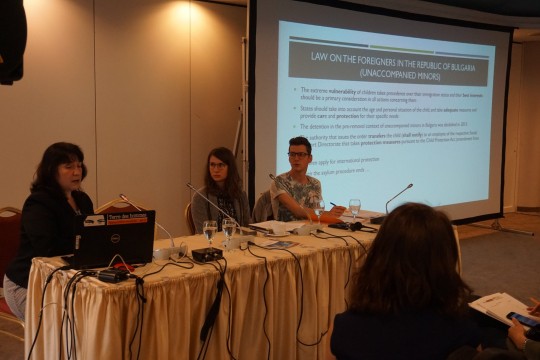On June 4th 2019, Terre des hommes Romania (Tdh) hosted a conference with the Platform for International Cooperation on Undocumented Migrants (PICUM) about alternatives to child detention in the context of migration and asylum. Guests from around Europe were present to discuss the differences in policies in Belgium, Bulgaria, and Romania for accompanied and unaccompanied minors. There were also representatives from the Fundamental Rights Agency (FRA), Mineurs en exil, UNHCR Romania and Legal Resources Center (CRJ). This conference was part of an advocacy initiative called Safe, Not Detained which highlights that children are children before they are migrants and that children should not be detained. The initiative had three main elements which were drafting a road map of solutions, a child led campaign on the issue, and an advocacy event. Tdh also wrote a guide for judges and prosecutors which can be found here (in Romanian).
Child detention occurs during the migration process as either part of the reception procedure into the country, part of a Dublin transfer, or part of a return decision. Often, children are detained with their family or if there is confusion about their age. Staying in a closed detention centre can be a traumatizing and stressful experience for children and removes their rights. Child protection laws should be prioritized over migration laws, but they are often ignored. Tdh believes that there are different alternatives to keeping children in detention or public custody and that there needs to be more data collection on the issue.
During the conference, guests discussed on several practical alternatives to detention of minors. Speakers from Belgium shared that they are working on more alternatives, but are currently using return houses to host families who are in the removal process. In 2018, a repatriation centre with family units opened, but has since received criticism for being another kind of closed facility.
Another alternative idea is having a case manager assigned to each migrant who will help them through the process of immigration. Case management also helps with the next steps if migrants are not approved to stay in the country. This can help families trust in the system and can also be less costly. The UNHCR representative also noted that when alternatives to detention are applied that migrants are more likely to comply and work with authorities. Tdh is looking into alternatives that can be used in the Romanian context as detention is never in the best interest of the child.
This conference was organised under Safe, not detained project. This project was funded by the European Program for Integration and Migration (EPIM), a joint initiative of the European Foundation Network, H&M Foundation in partnership with the Initiative for Children in Migration, Missing Children Europe and PICUM.
For more information, contact Elena Patrateanu, project manager, at elena.patrateanu@tdh.ch.
Article written by Marie Gomez, communication intern at Tdh Romania.






